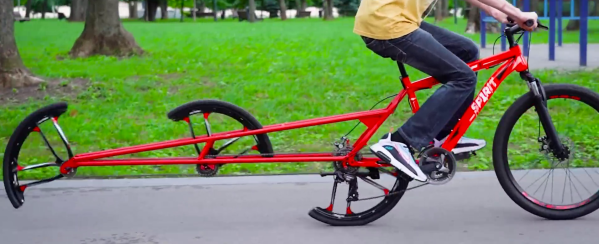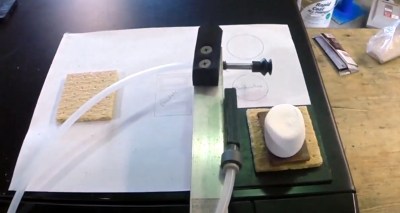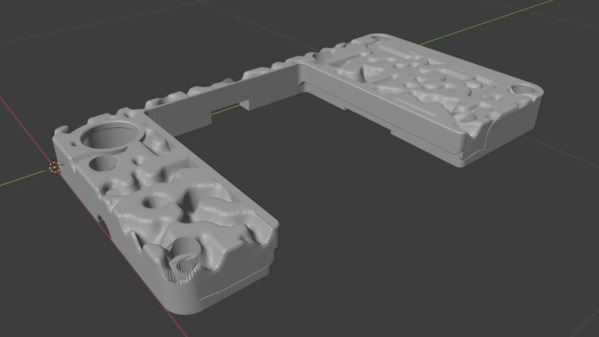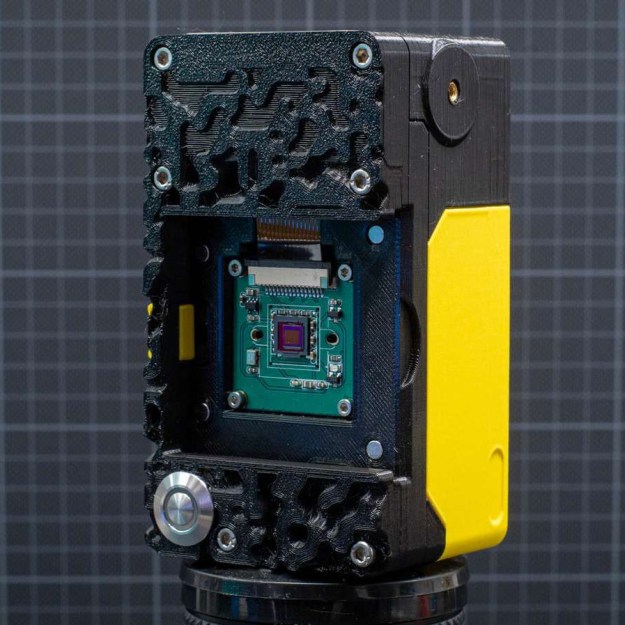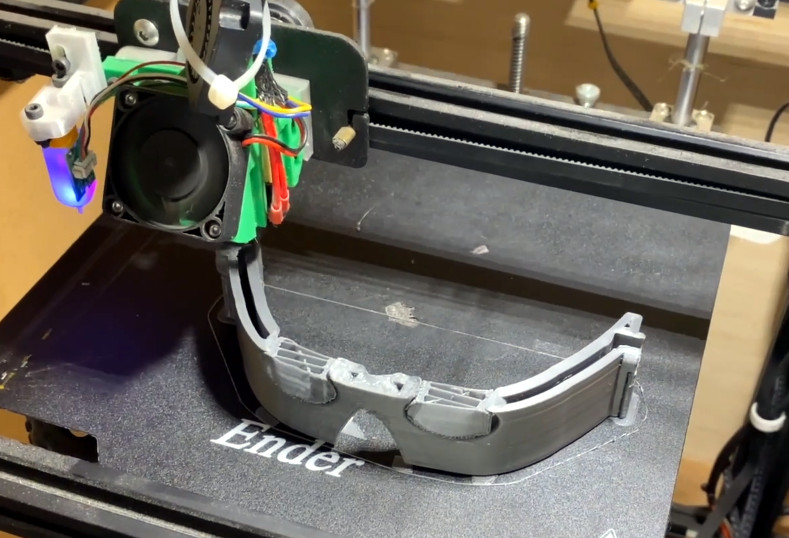Bicycles need at least two wheels to be rideable, but [The Q] realized you don’t necessarily need the wheels to be in one piece. As long as you have at least two points of rolling contact with the ground, you can spread the load across multiple partial wheels. He demonstrated this by splitting the rear wheel of his bike first in half and then thirds to create an absolute head turner.
Since a conventional bicycle wheel with tensioned spokes would collapse if cut apart, [The Q] used single-piece aluminum wheels instead. The tires were cut into pieces, and the inner tubes were replaced with sections of thick-walled HDPE pipe that won’t collapse under the weight of a human. The tires and the HDPE “inner tubes” were riveted to the wheels.
To mount the additional wheels on the frame, [The Q] welded a set of extensions to the back with mounting points for the partial wheels. To keep them synced, timing is done with chains running on sprockets welded to the disc brakes. In the second video, he tries to also split the front wheels, but found the front forks can’t handle the torque and would flex dangerously when the contact point is too far forward. Instead, he settled for three wheels on the back.
Much like his hubless bicycle, it’s not designed to be better than a standard bicycle, but is excellent for attracting attention. Though at least in some situations, the all-wheel drive bike he built last year might come in handy.
Continue reading “Trippy Bicycle Uses Multiple Partial Wheels”

